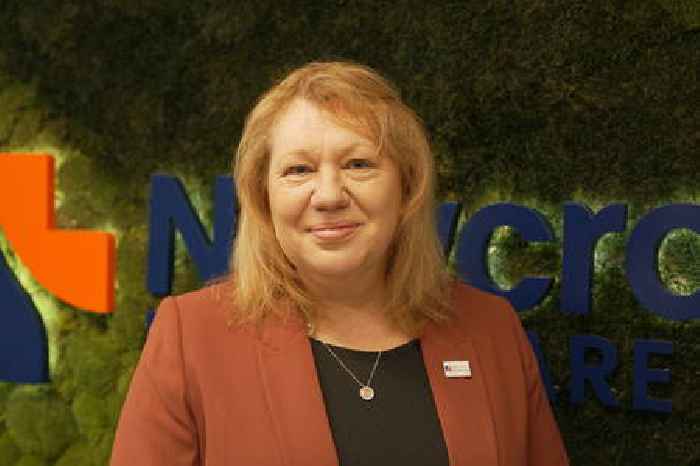Thursday 11 May, 2023Ahead of International Nurses Day - on May 12th - Helen Whyley, Director for the Royal College of Nursing in Wales, has given a candid interview outlining what she says will be a “massive future” for the nursing profession.
After a turbulent period for the RCN in Wales which saw its members take strike action for the first time in its 100-year history, Ms Whyley told Newcross Healthcare’s Voices of Care podcast series that she believed the future for nurses was a bright one.
“In my world, if you want something done, you tend to ask a nurse. We don't have enough doctors [but] we provide advanced nurse practitioners. We don't have enough people to look after people with enduring mental health, we create consultant nurse roles. So nursing is a safety-critical, evidence-based profession that has a massive future.”
Ms Whyley, who led the union’s pay negotiations with the Welsh government, goes on to call for continued investment in the profession and better workforce planning.
“In Wales and across the rest of the country, we tend to workforce plan for staff nurses or support worker roles. We don't always think when we have 100 new nurses across their careers, we actually want some of them to be health visitors and some to be advanced nurse practitioners and some to be consultant nurses and some to be endoscopists and all sorts of things that nurses do.
“We don't plan for that. So, for me, that future can be made really bright by developing those career pathways.”
She also questions why nurses are not offered the same kind of contracts as other healthcare professionals working in the NHS.
“We've got as many skills to offer as pharmacists and GPs and dentists and others, so we need to think differently about where nurses want to go. The way nurses want to work is different too, nowadays. People want flexibility, they want to be able to work when they want to and generally it's a 24/7 service. So, there's really no reason why we shouldn't be able to do that.
“We ought to move into the mindset of the future generations. It can be about flexible working, getting that balance so that you can have a fantastic career, well supported, but also have a really good home life. What a fantastic profession to be in, it really is. It changes people's lives, and it is a great way to spend your time caring for other people.”
Discussing the build-up to last December’s strike action, Mrs Whyley said the campaign for improved pay and conditions had been a humbling experience for her.
“I speak to members all the time, but I didn't realise it was quite as bad as it was. I would hear stories that really made my toes curl, of staff put into situations that we shouldn't put staff into, where they'd walk into a ward, for example, be a newly qualified nurse and have no other substantive staff with them… promises of a senior nurse to help you never arriving. And that wouldn't just happen for one day, but it would happen for weeks.”
The sense of injustice felt by nurses, she believes, will be very difficult to resolve in one or two “pay years”.
“We have to think and demonstrate that we can do short, medium and long term planning and take those actions.
“For a college, I think we've also learned how to engage and mobilise our members and give them the power to grasp their voices and talk about these issues. Whereas before I think nurses felt quite intimidated not to say I'm worried about patient care.
“But now I think we have engaged them and empowered them to take that space and really speak up for their profession and the things that they value. And so going forward, I'm hoping that we'll get to a sense of some industrial peace. We'll have a roadmap that really delivers for the nursing profession. I'm really proud of my profession and it's something I know we can do, and I know we'll make an absolute difference, not just for the people who want to be nurses and who are nurses, but ultimately for the care of patients.
“Just look at the evidence base. It speaks for itself. You have registered nurses. People live longer. They don't go into hospital. They have less harm whilst they're in hospital or using services. So those are all things when I think about where we've been with the industrial action that I'm really keen that we keep and use as we move forward over the next few years.”
Hosted by healthcare expert Suhail Mirza, the podcast episode featuring Helen Whyley is available now alongside previous episodes in the series on various platforms including YouTube, Apple, Spotify and the Newcross Healthcare website.
Distributed by https://pressat.co.uk/
Nurses’ union boss foresees “massive” future for the profession
Pressat
0 shares
1 views


